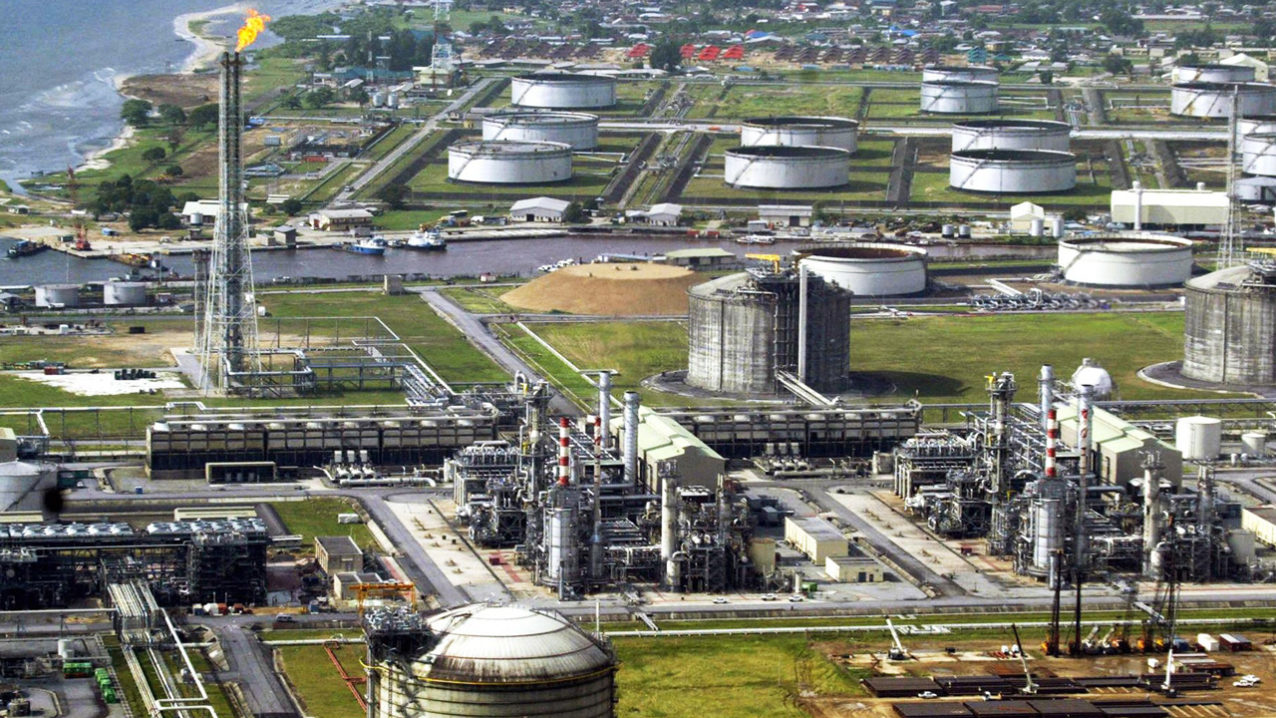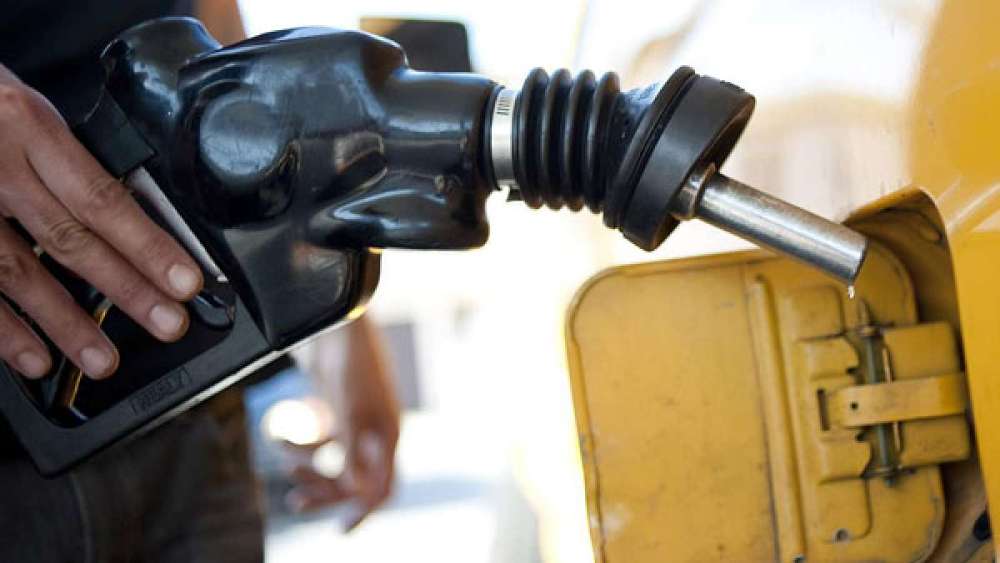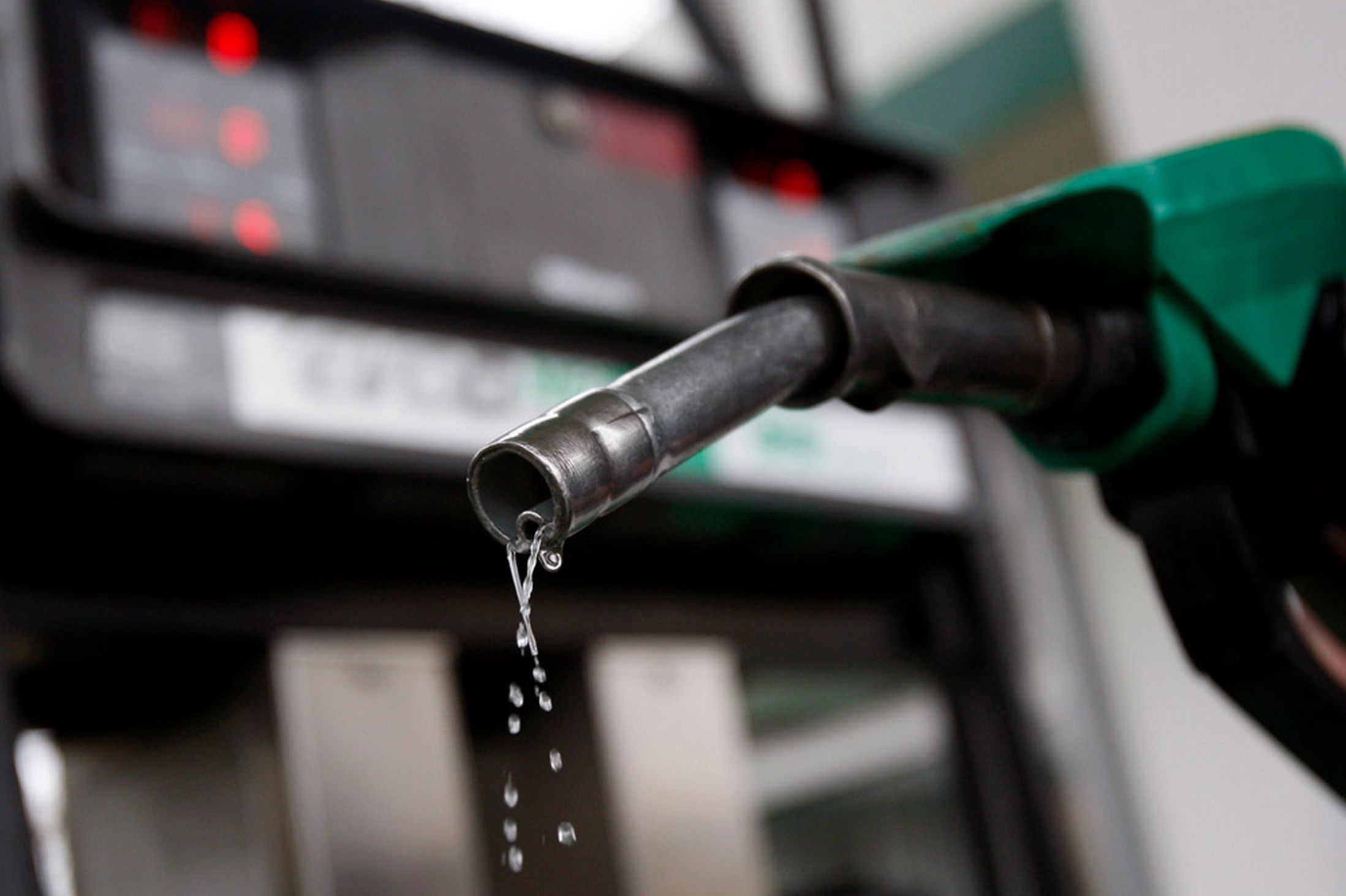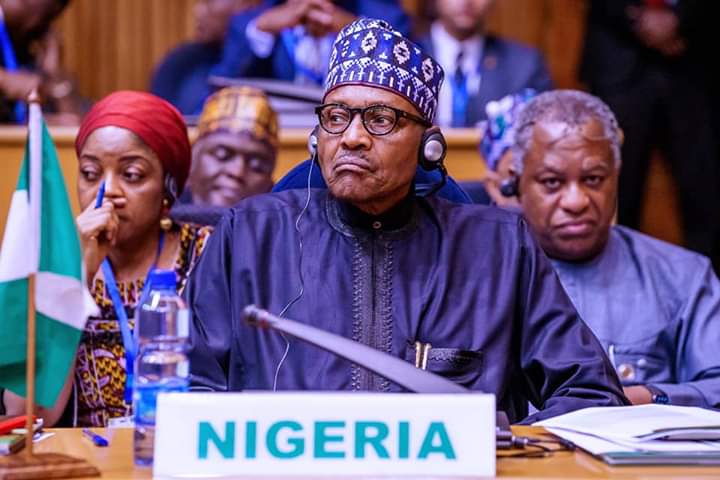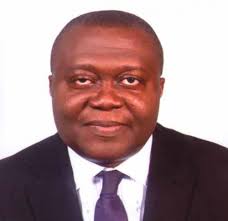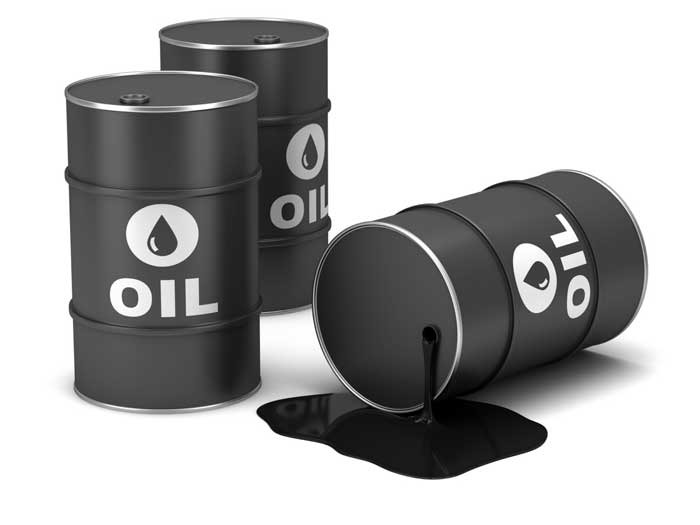By Ehi Braimah
The Honourable Minster of Mines and Steel Development, Arc Olamilekan Adegbite, blew the whistle on some “powerful and influential” Nigerians recently during a media briefing in Abuja. What was the story? According to Arc Adegbite, these economic saboteurs – that’s what they are – have been putting pressure on the federal government to free Chinese nationals arrested for illegal mining in the country. In other words, these men of means and privileged access to power are trying to give the Honourable Minister a hard time simply because he’s doing his job. Hmmn, Nigeria we hail thee!
It turned out that the Osun State government arrested 27 persons for illegal mining of gold, and 17 of them were Chinese nationals. And you can bet, the pressure to release the culprits will continue to mount by every means possible. However, it appears Arc Adegbite is not willing to back down; from his body language, he’s ready to confront the godfathers who are “Nigerians in high authority” as he described them. The Minister also accused some soldiers of aiding illegal mining activities similar to the accusation made by Governor Nyesom Wike of Rivers State against some army officers whom he described as the masterminds behind oil bunkering in the State. Illegal mining and oil bunkering are high stakes game for the players – usually “big boys” — and they always fight dirty once they feel their pot of honey is threatened.
The first set of illegal miners was arrested in Zamfara State before the Osun State arrests were made and the biggest culprits are the Chinese. They come into Nigeria and stay behind illegally with expired tourist visas and work permits. To make matters worse, they work as illegal miners. As oil prices crashed globally due to the economic crisis wrought upon us by COVID-19 pandemic, mining for gold has become attractive and lucrative. Factories around the world have shut down due to COVID-19 outbreak, so demand for industrial metals such as lead and zinc has dropped thereby making gold a hot cake. The price of gold in the international market is not stable; it varies depending on the market forces of demand and supply as well as the price of US Dollar.
Historically, gold has always been a store of value/wealth and right now, the going price is $1,700 per ounce. It perhaps explains why, according to my sources, our precious gold was illegally ferried across the border recently to a waiting private jet in Niamey, Republic of Niger, even as we fought to contain the spread of COVID-19. Now that revenue to all tiers of government is shrinking, our governors are becoming wiser and co-operating with the Ministry of Mines and Steel Development (MMSD) and they now see gold as a viable alternative to boost revenue.
This shift in focus is a creative survival strategy. It has allowed for a legitimate operation by a Canadian company that was duly licensed to mine the large gold reserves in Osun State estimated at over one million ounce. Although COVID-19 has slowed down the process of building the mine, the value is close to $2 billion if you do the maths at the current price and the federal government will earn 5% royalty. However, the federal purse will be fatter if we go into partnerships with industrial licensees as we have it in the oil and gas sector.
Mining used to be a big deal in this country until we discovered oil, the black gold, in 1956. We not only abandoned mining, agriculture also suffered a major setback. By 1940s, Nigeria was a major exporter of columbite, tin, coal and tantalite in much the same way the groundnut pyramids (from the North); cocoa (from the West); rubber (from Midwest) and palm oil (from the East) were the pride of Nigeria in terms of export revenue in the good old days. See how the price of oil crashed in the global market amid COVID-19 pandemic and the consequential damages to our economy – 90% of our foreign exchange revenue comes from oil.
The Ministry of Mines and Steel Development has full responsibility over mining regulations under the Federal Minerals and Mining Act of 1999. When former President Olusegun Obasanjo took office, he privatized the extractive industry because the public corporations in the sector did not have any redeeming value left. Our mineral assets are huge and they can be found in several states across the country. More than 40 minerals — excluding oil and gas – have been documented by the Ministry. They include gold, tantalite, coal, bitumen, silver, iron ore, barite and gypsum. Tantalite deposits are in Nassarawa, Kogi, Osun, Ekiti, Kwara, Cross Rivers and a few other states, and you are most likely to find the mineral alongside columbite. Tantalite is a dark brown mineral chemically similar to columbite and they have significant economic value.
Apart from being the largest exporter of columbite, tantalite and tin in the world before independence, Nigeria also had one of the best coking coals in the world. According to Dr Ikenna Nwosu, an energy expert and public policy analyst, coking coal produced from Onyeama Mines in Enugu was used to generate energy that powered engines in factories, trains and so on. During colonial rule, expatriate miners used mechanized mining — mining in commercial quantity — but they left Nigeria during the civil war that lasted from 1967 – 1970.
Since then, our extractive industry has suffered; we have refused – either through acts of omission or commission — to develop the industry because of oil and it explains why we still import minerals such as salt (also known as sodium chloride) that we use every day when we cook. Who doesn’t know the value of salt in our bodies? Anyway, you can check with your doctor or simply do an internet search which I did – salt acts as important electrolytes in the body; salt also helps with fluid balance, nerve transmission and muscle function. We also import iron ore – used mainly in the production of iron and steel – when we have large reserves in Itakpe, Kogi state; in fact the reserves are in excess of 200 million tons.
When Dr Kayode Fayemi was the Minister, a Mining Sector Road Map was created to address the challenges in the sector and one of the expected outcomes was that mining activities would contribute 7% to GDP based on sustained mining of limestone by the major cement production companies such as Dangote, BUA and Lafarge. Although the target was ambitious, the Road Map was a great visioning document for the future if properly implemented. In addition to mining limestone, quarrying gravel and chipping (used in civil/building construction) as well as sand mining (sand dredging) are economic activities that can also grow the GDP target.
Illegal mining began to gain prominence after independence in 1960. Mining rights belong to the federal government but it grants licenses for exploration, mining and sale of minerals. As I noted earlier, it was under former President Obasanjo that a bold reform initiative in the mining sector was introduced; Oby Ezekwesili was the Minister at the time. It was essentially a strategic policy framework to regulate the mining industry. For example, the policy reform led to the creation of Mine Police, a unit that was supposed to work with the Mines department of the Ministry to fight illegal mining. Unfortunately, the level of success recorded is nothing to write home about, a scorecard that continues to harm the image of the Police Force.
In the absence of effective policing, illegal mining has continued unabated and no royalties are paid to the federal government. Irresponsible mining practice harms the environment and ecology. In addition, the environmentally unfriendly methods and materials used in mining put the health of everyone in the community in grave danger. The miners, working mostly in the North West and South West zones of the country at the behest of their masters, use diggers, shovels, hoes and axes to dig for minerals. Unlike in mechanised mining which involves mining and processing minerals to add value, illegal miners extract minerals, especially gold, in their rawest form and smuggle them out of the country to willing buyers without any interception by Nigeria Customs Service.
Illegal and unsafe mining activities take place in remote villages where labour is cheap. Villagers are employed to dig for minerals but due to their crude methods, the mines sometimes collapse resulting in several deaths. The digging is wide and deep, forming craters on the land. When it rains, the trenches become “mining ponds” which is very dangerous because of the metallic residue from the mining operations – it is acidic and poisonous. Once mining is over, the trenches dug are abandoned. The Zamfara State story immediately comes to mind – acute lead poisoning caused by the processing of ore affected more than 3,500 children and killing over 400; the local river where they fetch drinking water was contaminated. Media reports at the time indicated that lead concentration in the atmosphere of some homes reached 23,000 parts per million which was well above the 400 parts per million threshold considered safe.
Another dangerous dimension to illegal mining is crime and armed conflict. In most of the mining communities, you will find widespread violence and kidnapping due to gang rivalry over mining resources. It explained why the Inspector General of Police, Mohammed Adamu, banned mining in Zamfara State two years ago where over 80% of illegal mining for gold takes place. Illegal mining and gang violence escalated to the point where all mining activities in the State were discontinued on the orders of the IG.
In spite of reports of conflict, violence, death and the IG’s best efforts, illegal mining operation continues to thrive and it encourages illegal migration from all over West Africa. An exploration license is not a mining lease; the title implies that the holders should report minerals that they find within a 20 square kilometres area. But too often, they become Illegal miners without the rights to mine any mineral. Even when licenses are issued to mine limestone, for example, the practice has been to mine other minerals without reporting it.
The time has come for the federal government to pay more attention to the mining sector and minimize loss of revenue. Every dime will count in view of the parlous state of the economy. At the moment, our minerals contribute less than 1% to GDP. How can we scale up the value chain in terms of exploration, mining and processing? Where are the lapidaries — mining labs used for processing and cutting precious stones such emerald, topaz, amethyst and onyx? Beyond artisanal output, we need large scale and industrial licensees to mine commercial quantities of our minerals.
With all the minerals that Nigeria is blessed with, we should aim to compete in the international market by standing up to the economic saboteurs and implementing relevant government policies – all the policies are available in black and white; getting the job done does not require any rocket science. We should avoid red tape and unnecessary bureaucracy which are usually our biggest headaches in implementing strategic reforms; clearly, the Honourable Minister needs our support to succeed so that the mining sector can become a shining example.
The number one market in the world for Diamond, Emerald and Amethyst is in Antwerp, Belgium and it is controlled by the Jews. To become a global player, the Ministry can forge collaborations and partnerships – an institutional framework — with the Nigeria Chapter of the Extractive Industry Transparency Initiative (NEITI); the Nigeria Police, Nigeria Immigration and Customs Service – these organisations should come together under a Presidential Task Force (PTF) subject to the approval by President Muhammadu Buhari to combat the menace of illegal mining.
As part of its mandate, the proposed PTF intervention must focus on the multi-dimensional nature of illegal mining: economic sabotage, armed violence and conflict, crime, illegal immigration, public health crisis and national security implications. Illegal mining created problems in Liberia, Sierra Leone and Republic of Congo several years ago but it was the rampant smuggling of Diamond that became the albatross of Sierra Leone resulting in armed conflict, bloodshed and heavy losses in tax revenues. At the height of the civil war in Sierra Leone in the 1990s, Africa Business magazine reported that rebels sold Diamonds from the areas they controlled — in what became known to the world as the “Blood Diamonds” saga — to purchase arms. The United Nations estimated the illegal export of Diamonds was worth about $125 million each year.
As long as there is a market for illegal mining, the practice will continue. The campaign to arrest and prosecute illegal miners should be intensified. “However, while enforcement of the law is a good thing,” remarked David Rhode, co-founder of London based ethical jewelers Ingle & Rhode, in the Africa Business magazine story under reference, “paying fair price to artisanal miners or their employers will also do the trick.” With the right incentives, fairness and equity, small scale operators (artisanal miners) and industrial licensees should be able to come together under the close supervision of the PTF and optimize their resources in the extractive industry.
*Braimah is a public relations and marketing strategist based in Lagos (ehi.braimah@brandimpact.ng)

